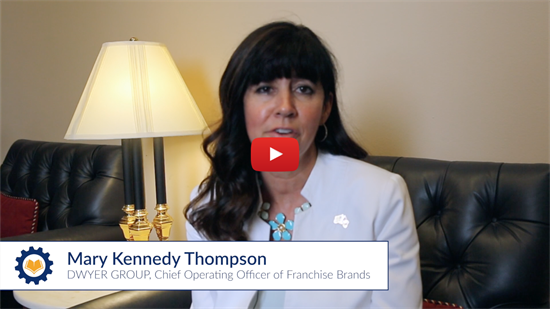Today, more and more women are pursuing the dream of entrepreneurship. From 2007 to 2016, the number of women-owned businesses increased by 45 percent. That’s five times faster than the national average. Across the country, there are now 11.3 million women-owned businesses, representing 38 percent of U.S. firms.
These numbers should be celebrated. But female entrepreneurs still face challenges. According to the Small Business Administration:
“The major constraint limiting the growth, expansion, and wealth creation of small firms — especially women and minority-owned businesses — is inadequate capital.”
Many female entrepreneurs open their own business through franchising, which often involves lower start-up costs. In fact, women are more represented in the franchising industry than the business community at large, owning or co-owning 45 percent of all U.S. franchises.
Shelly Sun, the founder of a home health services franchise, is one of those women. But she’s warning that, because of a confusing joint employer rule, it may be harder for more women to achieve the same success unless Congress acts:
“Unfortunately, this model that benefits so many women has been under extreme pressure … Franchisors and franchisees no longer know what might set off a joint employer lawsuit, so they are playing it safe. Franchisors are providing fewer beneficial resources that first-time business owners, especially women, depend upon ... Congress must make H.R. 3441 a top priority this year. With its passage, the clear joint employer standard would be restored right away. And, importantly, more women, and men, would be emboldened to embark on their dreams.”
And here’s what Mary Kennedy Thompson, a former Marine and chief operating officer of franchise brands for Texas-based Dwyer Group, had to say about what’s at stake:
Shelly and Mary are among countless entrepreneurs concerned over the consequences of the joint employer scheme. Kristie Arslan, the owner of a small gourmet popcorn shop, explained how she had to abandon her plans to open five new stores because of the uncertainty.
Mara Fortin, who owns several small bakeries in California, said she could be “forced out of business altogether.” Speaking in support of H.R. 3441, Tamra Kennedy, a Minnesota local business owner, said, “When you’ve worked your way up from the bottom like I have, you don’t like to see anyone knock you back down.”
These personal stories abound. The point is that if we want to empower more women to climb the economic ladder, passing the Save Local Business Act is an important piece of the puzzle.

